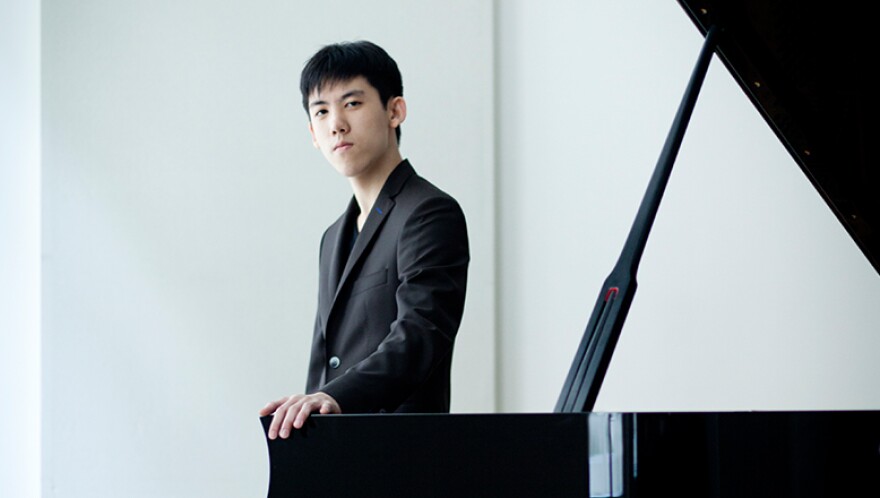Haochen Zhang is the co-winner of the 2009 Van Cliburn piano competition, a virtuosic performer, and 25-year old master of his instrument. This week Zhang joins the Columbus Symphony Orchestra and conductor, Rossen Milanov onstage for Prokofiev's Piano Concerto No. 2 and Tchaikovsky's Symphony No. 4.
If you missed the Columbus Symphony Orchestra's opening weekend earlier this month, you missed an evening of inspiring music and community. The Ohio Theatre was packed, and the diverse audience was duly ecstatic after Donald Harris's thoughtful Lyric Fanfare and Carl Orff's epic Carmina Burana.
Thankfully, we have a whole season ahead, and it looks to be one of musical thrills around which the CSO is building a thriving and wonderfully diverse audience.
This week, the CSO will take the stage with the imaginative pianist Haochen Zhang. There are many ways to describe Zhang's playing, but perhaps masterful is the most descriptive; his dynamic articulation and sensitivity to phrasing along with the sense of gravitas in his stage presence makes him an artist to keep on your radar.
So far this year, Zhang has already made his debut with the London Symphony Orchestra and the National Orchestra of Mexico.
This week, we can experience his musicianship live in Columbus.
The Program
August 23, 1913, Sergei Prokofiev premiered his Piano Concerto No. 2 in G minor as a tribute to his dear friend and fellow pianist from the St. Petersburg Conservatory, Maximilian Schmidthof who had taken his own life the previous April with a suicide likely caused by his extreme debt.
There is speculation that Prokofiev and Schmidthof were more than friends, in fact, their whole chess club had a reputation as being a haven for homosexulality and Prokofiev's own wife later quoted in an interview that the composer had such tendencies.
Whatever the nature of their relationship, the music makes it quite clear that Schmidthof was quite dearly missed by Prokofiev, who proceeded to write diary entries rife with more empathy than expressed in any of his other writings. This tumultuous end to a friendship can also be heard in the score of the piano concerto; it is a work that received a mixed reception due to its anachronistic harmonic language and tempestuous quality.
Unfortunately, the original orchestral score to Prokofiev's second piano concerto was destroyed in a fire on the heels of the Russian Revolution, so what we hear in concert halls today is actually the revised edition from 1923. This, of course, has made it no easier to play. In fact, Prokofiev biographer and musicologist David Nice stated in 2011:
"A decade ago I’d have bet you there were only a dozen pianists in the world who could play Prokofiev’s Second Piano Concerto properly. Argerich wouldn’t touch it, Kissin delayed learning it, and even Prokofiev as virtuoso had got into a terrible mess trying to perform it with Ansermet and the BBC Symphony Orchestra in the 1930s, when it had gone out of his fingers."
Tchaikovsky's Symphony No. 4. in F minor received a similarly interesting dedication upon its publication and premiere in February of 1878. The composer had just come out of a difficult marriage when he developed a friendship with Mme. Nadezhda von Meck who also became his financial patroness.
It was not unusual for a composer to dedicate a work to their patron with an inscription such as "To My Dearest Friend," since they often were friends, you know... with financial benefits. But, what is striking about Tchaikovsky's decision to inscribe these words to Nadezhda von Meck is that it essentially asserted that she could be his friend and his equal. This was extraordinarily bold and egalitarian move for Tchaikovsky since the Russian culture was, at that time, so deeply patriarchal.
The combination of these two pieces of music on the Columbus Symphony Orchestra's program this weekend stands as a musical testament to their continuing friendship with Columbus. These works epitomize friendship and its intrinsic value throughout the lives of artists and composers.
So go support the Symphony, and bring a friend!



